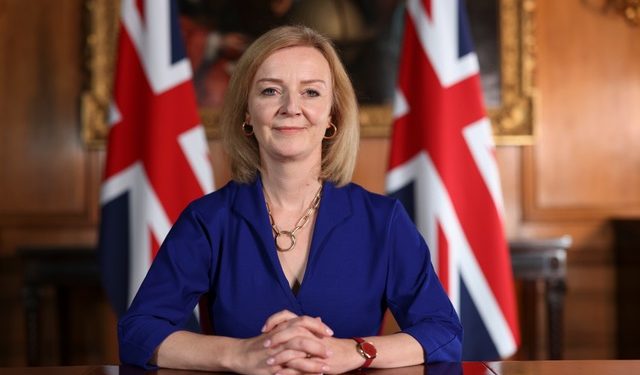Liz Truss, now confirmed as the UK’s next prime minister, faces a growing number of savings and pension challenges amid a spiralling cost-of-living crisis.
During the leadership campaign Truss has committed to a number of tax and personal finance changes – many of which are expected to be implemented in an emergency budget this Autumn.
This includes a reversal to the increase in national insurance contributions. There has also been speculation that Truss and her new Chancellor — expected to be Kwasi Kwarteng — may cut VAT from 20 per cent to 15 per cent and could also remove the green levies on energy bills.
AJ Bell head of retirement policy, Tom Selby says: “We have heard plenty from Liz Truss about where she is going to spend money during this election campaign, with pledges — some specific and others woolly — ranging from scrapping the National Insurance rise to cancelling a planned increase in Corporation Tax and cutting VAT. However, the new Prime Minister has been relatively quiet on how all these promises will be paid for.”
He says these measures are anticipated to cost more than £30 billion, according to the Institute for Fiscal Studies, although there is some uncertainty around this the lack of specifics on some proposals.
Selby adds: “The big question now is whether Truss will stick to her plan not to offer additional direct targeted help to the poorest households ahead of the energy price cap surging from £1,971 to over £3,359 for a typical household in October.
“She clearly felt that tax cuts would appeal more to Conservative Party members, but in reality they will do little for those on the lowest incomes who most need support. Given a general election is only a couple of years away, it would be no surprise to see a screeching U-turn now she has the keys to No.10.”
Pension companies have said that while these may not be top of the domestic agenda, given these issues around energy pricing — there is a need to look at a number of pension and savings issues and to balance short-term crisis management with longer term financial wellbeing.
Standard Life’s managing director of customer savings and investments Jenny Holt highlighted the issue of the pensions lifetime allowance become “more contentious” and potentially leading to more NHS staff retiring early.
Holt says: “In In last year’s Spring Budget Chancellor Rishi Sunak froze the pension lifetime allowance at £1.073m to 2026. Since then, inflation has spiralled to double digits and the real value of what people can save in their pension without incurring tax charges has fallen significantly.
“The impact of this policy has been most controversial when it comes to NHS staff. Reports suggest many doctors and other senior staff are choosing to retire early given the potential tax bills they could face for continuing to work and pay into their pension. At a time when NHS waiting lists are high, this is a particularly contentious policy.”
She adds: “The effects of the policy are not just limited to the NHS. Middle to higher earners who have saved diligently over the years could all be caught out. With those approaching retirement seeing costs rise, many will be looking to ensure they are adequately prepared for the type of retirement they’d envisaged but the reality is, the real value of what they’re able to save is being cut.”
Looking at other possible changes Hargreaves Lansdown says a more comprehensive review of the tax system could also be on the cards, which may includes changes to inheritance tax.
However, it says Truss’s comments during the leadership campaign would indicate that there would be no change to the triple lock on pensions.
Hargreaves Lansdown senior pensions and retirement analysts Helen Morrissey has also called for the new government revisit the money purchase annual allowance, while also permanently cutting the penalty for the Lifetime Isa.
“People who have had to raid their pension to make ends meet or are returning to work to boost their pension to cope with soaring bills face a pension headache. Under current rules if you have already accessed your defined contribution pension, you can’t contribute more than £4,000 a year.
“The money purchase annual allowance of £4,000 was introduced to stop ‘recycling’, where people access their pension and then re-invest contributions for another round of tax relief, but the same thing could be achieved with anti-recycling rules, which only kick in when someone has accessed their pension with the express intent to recycle the cash.”
Hargreaves Lansdown added there was a danger that Truss’s promised tax cuts, including the NI reduction would be inflationary. “The risk is that an awful lot of potential tax cuts will do more than offset rising prices for higher earners. While it would be a welcome boost for them, it could mean pushing prices up even further, which could leave us all worse off.”





